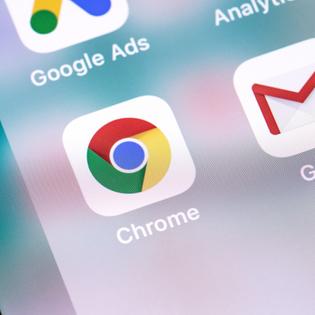Advertiser Disclosure
All About Cookies is an independent, advertising-supported website. Some of the offers that appear on this site are from third-party advertisers from which All About Cookies receives compensation. This compensation may impact how and where products appear on this site (including, for example, the order in which they appear).
All About Cookies does not include all financial or credit offers that might be available to consumers nor do we include all companies or all available products. Information is accurate as of the publishing date and has not been provided or endorsed by the advertiser.
Editorial Policy
The All About Cookies editorial team strives to provide accurate, in-depth information and reviews to help you, our reader, make online privacy decisions with confidence. Here's what you can expect from us:
- All About Cookies makes money when you click the links on our site to some of the products and offers that we mention. These partnerships do not influence our opinions or recommendations. Read more about how we make money.
- Partners are not able to review or request changes to our content except for compliance reasons.
- We aim to make sure everything on our site is up-to-date and accurate as of the publishing date, but we cannot guarantee we haven't missed something. It's your responsibility to double-check all information before making any decision. If you spot something that looks wrong, please let us know.
As concerns about big tech and data privacy increase, many people are switching to private messaging apps, such as Signal or WhatsApp. However, it can be confusing when comparing each app’s features, their levels of security and privacy protection, and what data each platform stores and uses.
If you’re looking to increase your security by switching to a private messaging app, look no further than our article detailing the similarities, differences, and everything else you need to know about Signal and WhatsApp (including the best VPNs to keep your data secure). Though WhatsApp may be more popular, Signal is the more secure app.
Does Signal or WhatsApp collect your data?
Signal vs. WhatsApp features
Signal vs. WhatsApp FAQs
Bottom line: Is Signal better than WhatsApp?
What’s the difference between Signal and WhatsApp?
Both Signal and WhatsApp use the same encryption protocol from Open Whisper Systems and use end-to-end encryption, which means that only the sender and receiver can read the messages between them. The companies themselves cannot access any of these messages.
However, metadata is still created, and that is not protected by end-to-end encryption. This kind of data includes information about when the message was delivered and who it was sent to. Signal does have software that protects metadata, though, called Sealed Sender; it hides this data from Signal itself.
WhatsApp can see your metadata, and it shares account registration information (like your phone number), transaction data, service-related information, mobile device information, IP addresses, and more with Meta and third parties. It does not share conversations, call/messaging history, location, or contacts.
WhatsApp has had some security breaches in the past. In recent years, there was a security vulnerability that allowed a hacker to install malware on users’ phones. Though WhatsApp was able to fix these vulnerabilities and there were no indications that anyone was hacked, it did raise questions about WhatsApp’s security.
In fact, WhatsApp's security and data collection issues caused Elon Musk to Tweet "Use Signal" in response. This led some to believe that Musk owns Signal, but it's actually owned by Moxie Marlinspike and Brian Acton through Signal Messenger LLC.
Telegram is another security-focused messaging platform that provides optional end-to-end encryption, file sharing, and other features. It can also be compared to WhatsApp.
Signal vs. WhatsApp security features compared
| Feature | Signal | |
| Company headquarters | Denver, Colorado, United States | Menlo Park, California, United States (Meta) |
| End-to-end encryption | ||
| Self-destructing messages | ||
| Hide your phone number | ||
| Two-factor authentication | ||
| Open-source code | ||
| Chat history cloud storage | No, messages are saved on device | No, messages are saved on device |
| Screen lock | ||
| Compatibility | iOS (iPhone and iPad) and Android, plus macOS, Windows, and Linux (Debian) desktop apps | iOS (iPhone and iPad) and Android, macOS desktop app |
Does Signal or WhatsApp collect your data?
Signal’s privacy policy says it does not sell, rent, or monetize personal data or content in any way. Calls and messages are always encrypted, and it only collects data provided by the user, such as the phone number used to register the account, profile name, a profile picture, messages, and contacts. However, this information is end-to-end encrypted.
The WhatsApp privacy policy notes it also collects data provided by users, such as the phone number used to register the account and a profile name. It states in its privacy policy that it uses its data for some third parties’ and Meta’s research on the app and its users.
How does Signal use your data?
Signal states in its privacy policy that it shares some data with third parties. For example, a third party will send a verification code to your phone number when you register with Signal. The privacy policy also explains that Signal may share data under certain circumstances.
- To comply with law enforcement and government requests
- To look into any potential violations
- To address security issues or fraud
- To protect the safety of Signal users
How does WhatsApp use your data?
WhatsApp states in its privacy policy that it uses data to understand how people use its services and how to improve them, to respond when a user contacts customer service, to verify accounts, and to provide users’ marketing from Meta Companies. WhatsApp does not allow third-party advertisements.
How to secure your messages with a VPN
One way to keep your private messages secure is by using a virtual private network (VPN). Although both WhatsApp and Signal use end-to-end encryption, this won't hide the fact that you're using these messaging apps. With a VPN, you can add additional encryption to your device and hide your online activities from unauthorized third parties. Here are some recommendations for VPNs to protect your messaging apps:
- NordVPN: One of the top VPN providers, Nord is a privacy forward, so you can rest assured that your messages will remain safe. It uses AES-256 encryption, has an audited no-logs policy, and is based in Panama (which is not subject to data retention laws).
- ExpressVPN: ExpressVPN is best for those who want a fast VPN that still provides enhanced security. On top of its no-logs policy and military-grade encryption, it also created the Lightway VPN protocol for more speed and security while you browse.
- CyberGhost: CyberGhost is a secure yet affordable VPN, with its starting price being $2.03/mo (cheaper than ExpressVPN and NordVPN). Yet it doesn't skimp on security, providing a strict no-logs policy with transparency reports and a headquarters outside of the Eyes alliances.
-
High-quality VPN offering safety and speed
-
Loads of servers for multiple connection options
-
Works with popular streaming services, including Netflix
-
Too many confusing plans
Signal vs. WhatsApp features
Signal and WhatsApp have similar messaging features that include voice, video, and text chats with both one-to-one and group messaging. However, when it comes to extra privacy settings, Signal has more options and customizations.
Verify new contacts
Both apps have built-in safety features that help verify new contacts.
Signal verifies new contacts with a unique safety number for each contact. This allows users to verify the privacy of their communication, and it helps protect against security attacks. This feature is most commonly used when a contact gets a new phone or re-installs Signal. If a safety number is marked as verified, any change must be manually approved before sending a new message.
WhatsApp has a security code feature that allows a user and a contact to verify that calls and messages are end-to-end encrypted. This code is found in the contact information screen as a QR code and a 60-digit number. This feature is only available in one-on-one chats. Users can enable security notifications to receive a notice when a security code changes.
Privacy-focused notifications
You can adjust the privacy of your WhatsApp notifications in two ways. You can turn off notifications entirely, or you can turn off message previews. However, you cannot modify the information shown on notifications beyond that.
For private notifications on Signal, the app takes these settings to the next level. Users can select what information notifications display – name and message, name only, and no name or message. You can also choose to hide notifications entirely.
Signal has more options to customize how much users want to show than WhatsApp.
Call relay
Call relay is a safety feature that puts calls through Signal servers to avoid revealing the user’s IP address to the contact. This is important for your privacy because people can use IP addresses to determine your location. When a call is relayed, the contact can only see Signal’s IP address, not the caller’s. Users can turn on a feature that will automatically relay all calls in their privacy settings in the Signal app.
WhatsApp does not offer a call relay feature.
Call relay is especially important in this day and age where anyone could be monitoring your digital presence. For example, the 5 Eyes, 9 Eyes, and 14 Eyes Alliances are groups of countries that have intelligence-sharing agreements and have come under scrutiny due to their impact on collecting and/or sharing what could be private data.
Self-destructing messages
Both Signal and WhatsApp offer disappearing or self-destructing message functionality.
In Signal, you can set a timer for messages to disappear anytime between 30 seconds to four weeks. Timed Signal messages have a timer icon at the bottom of the message.
The timer for a sent disappearing message will start after the user has sent it. If the user receives a disappearing message, the timer will start once the user has read it.
WhatsApp users can set messages to disappear after 24 hours, seven days, or 90 days. In an individual chat, either user can turn disappearing messages on and off. In a group chat, any of the members can turn disappearing messages on or off, or a group admin can control settings to allow only admins to do this feature.
Signal allows users to set disappearing messages for any amount of time, meaning more flexibility and customization for the users.
Signal vs. WhatsApp FAQs
Why should I switch from WhatsApp to Signal?
Signal offers more layers of privacy protection, customization of settings, and enhanced data security than WhatsApp. These include hiding metadata, not using user’s data, hiding notifications, allowing call relay, and others. If data security and privacy are your top concerns, Signal comes out on top.
Who owns WhatsApp?
Meta, formerly known as Facebook, owns WhatsApp. It acquired WhatsApp for $16 billion in 2014.
Who owns the Signal app?
Signal Technology Foundation owns Signal. Signal Foundation is a non-profit organization founded in 2018 that encourages other companies to adopt its technology and knowledge (according to its website). The Signal messenger app is developed by Signal Messenger LLC, which was founded by Signal creator Moxie Marlinspike and WhatsApp co-founder Brian Acton.
What’s the difference between WhatsApp and Signal?
Both WhatsApp and Signal are privacy-focused messaging apps that offer more security than a standard messaging app. However, there are many key differences between the two.
Open-source and privacy: Signal is open-source and peer-reviewed, and it keeps metadata private; WhatsApp does not. WhatsApp collects data and uses it for Meta’s research purposes.
Customizable features: Though both apps often have the same or similar features, such as verifying new contacts, hiding notifications, and automatically destroying messages, Signal’s settings allow for more customization of these features than WhatsApp allows.
Call relay: Signal also offers call relay, which allows users to hide their IP address (and, therefore, their location), but WhatsApp does not.
If you want to expand your online anonymity, you can hide your email address too.
Bottom line: Is Signal better than WhatsApp?
When it comes to privacy, data protection, and customization of settings, Signal clearly offers more than WhatsApp. With its layers of added security and its allowance for users to truly customize what others see, Signal is the top private messaging app.
However, a secure messaging app isn’t the only thing you need to stay safe online. You can use a VPN like NordVPN to encrypt your entire internet connection.
-
High-quality VPN offering safety and speed
-
Loads of servers for multiple connection options
-
Works with popular streaming services, including Netflix
-
Too many confusing plans
September 19, 2023: Optimized for monetization





